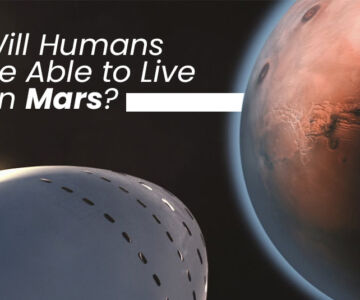 The Role of Women in Rural Home Services: Expanding Inclusionby admin / August 25, 2025
The Role of Women in Rural Home Services: Expanding Inclusionby admin / August 25, 2025Gamified Assessments and Career Simulations: The Role of AI
Did you know 60% of Fortune 500 companies are experimenting with gamified hiring? AI is now making it smarter, fairer and more engaging.
AI Powered Gamified Assessments and Career Simulations are revolutionizing the way employers discover talent as well as the way users demonstrate their abilities. These fun and interactive aspects are reshaping the obsolete recruitment model into more inclusive, accurate and user-friendly pathways.
In this article, we’ll explore how Gamified Assessments and Career Simulations are picking up steam, how AI facilitates them and practical examples with FAQs.
-
The Rise of Gamified Assessments in Recruitment
Conventional testing strategies like resumes research and conventional psychometric assessments tend to be boring. Gamified tests alter the equation by applying game mechanisms like points, leaderboards and interactive challenges to engage candidates in an experience, rather than a test.
Why it matters:
- Increased motivation and participation: Candidates will be more inclined to finish a gamified assessment. As an example, Millennials and Gen Z are much more inclined to finish a gamified job application.
- Improved response accuracy: The interactive format mitigates test anxiety and enhances performance.
-
How AI Enhances Career Simulations
Artificial intelligence brings richness and customization in assessments by turning assessment into adaptive and intelligent experiences.
Adaptive challenges and feedback: AI adapts tasks through its observations of candidate actions in “real time”, adapting challenges through changing difficulty and providing differentiated feedback.
- Data informed decision making: AI can process millions of datasets to help show patterns of performance and to predict job fit with greater precision.
- Efficiency with less bias: For instance, IBM uses AI-driven simulations to test real-world problem-solving in IT roles. AI powered tools look at previous transcripts as opposed to look or tone to explore competencies and assess in a ‘fairer’ fashion.
-
Advantages: Engagement, Fairness and Talent Fit
- Engagement & Inspiration
Gamified platforms induce a state of flow distinct goals, feedback loops and control increase performance and enjoyment.
- Inclusion & Bias Reduction
Background-agnostic platforms reduce unconscious bias. Gamified testing offers a fair platform for every candidate.
For instance, AI helps to find excluded talent and decreases prejudicial bias in the hiring process.
- Precise Talent Matching
AI-Infused Psychometrics improves the prediction accuracy of cognitive, emotional and behavioral characteristics.
-
Actual Tools and Applications
- Deloitte: used gamified assessments in its leadership training and reported higher engagement and better skill retention among participants.
- Unilever: leveraged Pymetrics gamified hiring and spent 75% less time hiring with reduced bias.
- Knockri: Uses NLP machine rich learning to evaluate a candidate’s audio and video responses on a candidate’s transcript.
- Centrical: Combines gamifically, personalized micro learning and using AI analytics to track engagement, waiting performance for training and analytics.
- Others: Pymetrics, Scoutible and Knack use games infused with AI to assess soft skills in a more fun and engaging way.
-
Difficulties and considerations in design
- The Novelty Effect: The initial interest will grow then subsequently decline with time as the “newness” diminishes. Maintaining interest will require ongoing, thoughtful non linear attitudes reflecting on the design.
- Ethical compliance/risk: AI systems have to be transparent and available for auditing to reduce the impact of bias.
- Investment level and Candidate skepticism: Some job seekers are concerned that AI or gamified assessments might feel gimmicky or unfair especially without transparency.
AI-fuelled gamified tools are precise and they require design, testing and iterative improvement.
FAQs
-
Where can I get gamified test practice for free?
There are many sites providing free sample gamified test tools most of which are through HR technology firms or learning platforms online. Some sites also have free gamified aptitude test practice sections available to prepare candidates.
-
Are there PDFs of gamified test questions and answers?
Although downloadable PDFs of classic sample questions are available, gamified tests usually depend on interactive spaces. PDFs can describe game logic or example scenarios but not actual interactive material.
-
What are some examples of gamified assessments?
Typical examples include:
- Simulated puzzle games, recording decision-making speed
- Scenario challenges, evaluating situational judgment
- Virtual “missions” or quests, measuring adaptability under stress
-
How can I practice gamified aptitude tests?
Seek out platforms with gamified aptitude preparation that includes mini games such as logic problems, memory exercises or response-time exercises. These are like real-world gamified tests.
-
What is a gamified assessment test?
A gamified assessment test combines game mechanics points, levels and instant feedback into Gamified Assessments and Career Simulations. Unlike traditional tests, they increase engagement and provide recruiters with more accurate insights.
-
What are gamification assessment tools?
These are software products that integrate game elements into hiring or learning processes. They could consist of adaptive tests, performance dashboards, scoring mechanisms and AI-driven feedback.
-
What is the Gamified assessment Cognizant method?
Cognizant has been claimed to have used gamified, AI-based recruitment tests to attract tech-savvy candidates and evaluate technical as well as soft skills in a dynamic manner.
-
What is Aon’s gamified assessment?
Aon provides gamified psychometric assessment with AI-based additions that offer engaging scenarios to test cognitive, behavioral and personality characteristics. They are designed with emphasis on engagement and predictive validity.
-
Are gamified assessments right for every role?
They are most effective for roles requiring problem-solving, adaptability and interpersonal skills. For highly technical jobs, gamified tools are often combined with coding tests or technical interviews.
-
Do recruiters really trust AI-powered assessments?
Yes. Adoption is growing among Fortune 500 companies but transparency and bias-checking remain key for recruiter confidence.
Conclusion
Gamified Assessments and Career Simulations enhanced by AI provide a synergetic relationship of engagement, equity and predictive validity. The opportunity exists to convert spongy assessments into engaging and enticing experiences and draw the remnants of the exceptional talent pool available, particularly Gen Z, while providing quantifiable assessment insights into recruitment that can be data-driven.
If these solutions will offer any potential, we will have to either create them in an ethical manner and approach them with transparency and inclusivity if we wish to achieve maximum public good. Used properly they can change the way organizations source, assess and onboard talent.
Have you ever tried a gamified assessment? Did it feel fairer than traditional tests? Share your experience in the comments below!


